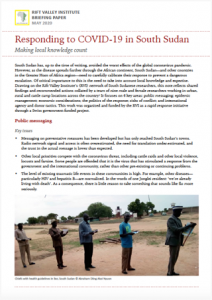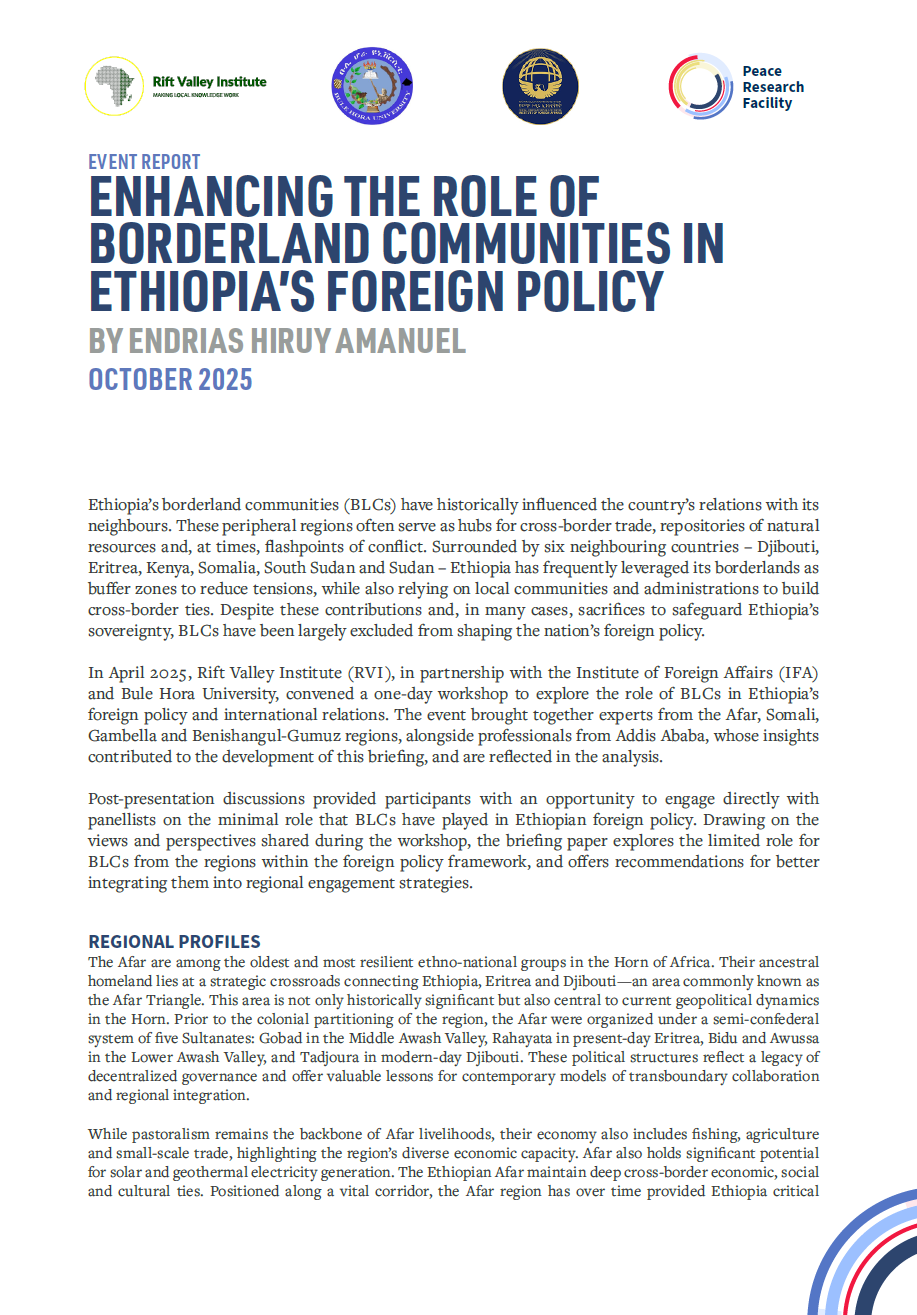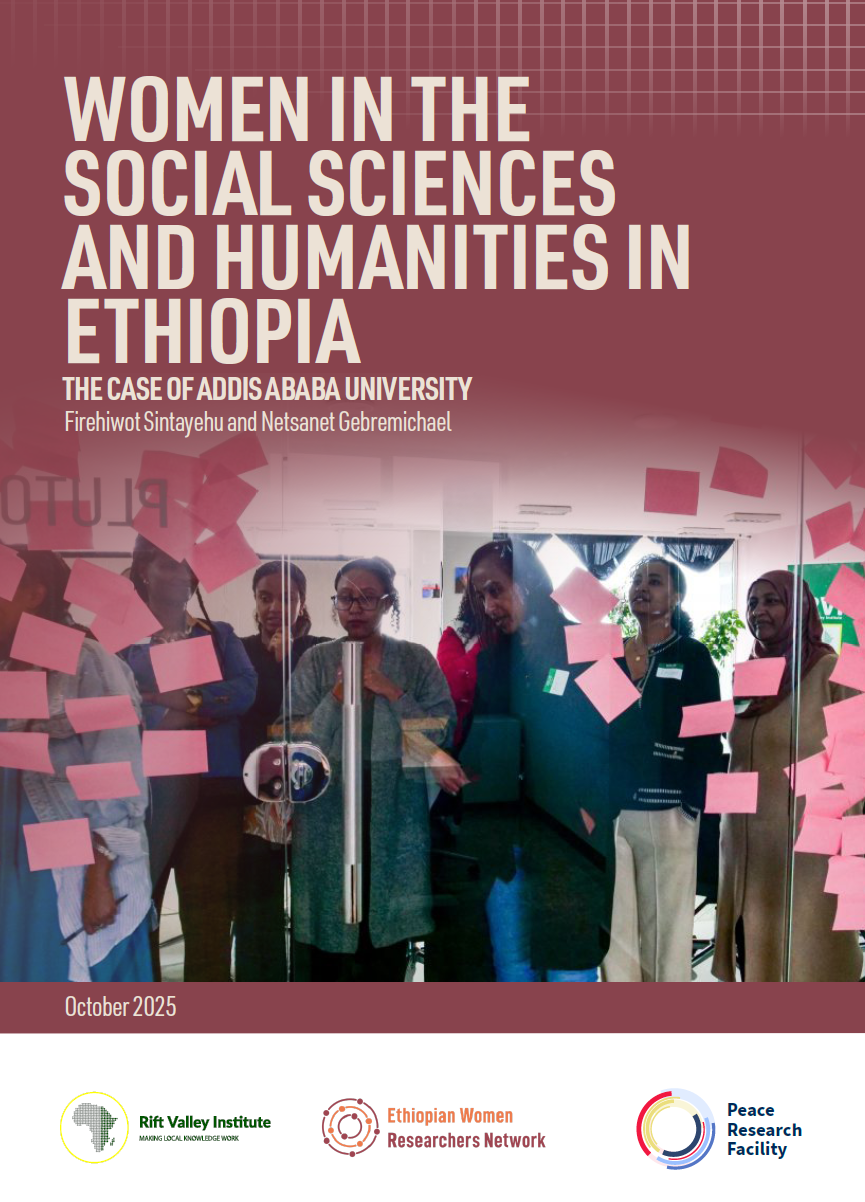South Sudan has, up to the time of writing, avoided the worst effects of the global coronavirus pandemic. However, as the disease spreads further through the African continent, South Sudan—and other countries in the Greater Horn of Africa region—need to carefully calibrate their response to prevent a dangerous escalation. Of critical importance to this is the need to take into account local knowledge and expertise. Drawing on the RVI’s network of South Sudanese researchers, this note reflects shared findings and recommended actions collated by a team of nine male and female researchers working in urban, rural and cattle camp locations across the country. It focuses on 6 key areas: public messaging; epidemic management; economic considerations; the politics of the response; risks of conflict; and international agency and donor tactics. This work was organized and funded by the RVI as a rapid response initiative through a Swiss government-funded project.
This note was compiled by Nicki Kindersley based on research by Joseph Diing Majok, Chirrilo Madut Anei, Elizabeth Nyibol Malou, Gatkuoth Mut Gai, Jovensia John Romano, Abraham Diing Akoi Nyuon, Abraham Mou Magok, Machot Amuom Malou and Ohide Johnson Atom.




